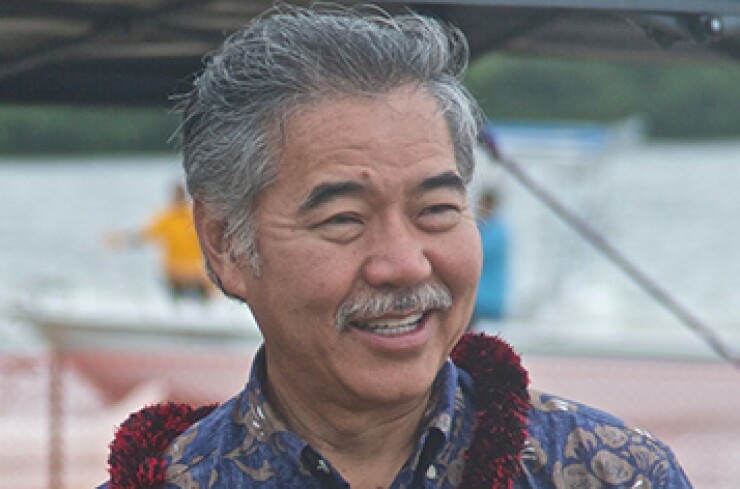
LOS ANGELES — Hawaii will fund a significant portion of the more than $3 billion in capital projects it plans in fiscal years 2018 and 2019 by issuing general obligation bonds, according to the governor’s budget.
Hawaii Gov. David Ige submitted the $30.5 billion 2018-19 biennium budget to the state legislature on Monday. It calls for $14.2 billion in spending in fiscal year 2018 and $14.3 billion in fiscal year 2019.
“Costs will continue to mount the longer these projects are delayed,” wrote Ige in his budget message to the state legislature. “It makes good financial sense to address these projects while the state’s bond rating is at its highest, which will help to reduce debt service costs.”
The budget includes $2.3 billion in capital improvement projects in fiscal year 2018 and $781.1 million for fiscal year 2019.
The governor requested $700 million in GOs be issued over the biennium just to support “capacity, equity and program support issues” at the state’s public schools. The budget also requests approval to sell GO bonds for University of Hawaii projects.
The state received one-notch ratings upgrades from both Moody’s Investors Service and S&P Global Ratings in September ahead of a $675.58 million GO bond sale. Moody’s boosted its rating to Aa1 and S&P raised it to AA-plus. Fitch Ratings affirmed Hawaii at AA.
“We have worked diligently over the past two years to improve our credit ratings,” Ige wrote.
The administration also plans to pay the other-post employment benefits annual required contribution at the 100% level in fiscal year 2018, ahead of fiscal year 2019, as originally scheduled. The ARC amortizes the OPEB $9.06 billion unfunded liability over a 30-year period, so restructuring payments to pay it down more quickly than required by statute should result in significant future savings to the state, according to the budget documents.
S&P cited efforts by Hawaii leaders to increase reserves and to deal with long-term liabilities for its upgrade.
The state passed a law in 2013 to pay down OPEB and has been implementing it ahead of schedule, according to the rating agency.
“Since taking office two years ago, our Administration has been working to align the state’s resources to solve our most critical problems and better serve the people of Hawaii,” Ige said. “We are committed to being fiscally responsible and to providing a government that is honest, transparent and responsive to its citizens.”
Ige said his top budget priorities for the next two years are education, tackling homelessness and efforts to double food production, protect watersheds and reach 100% clean energy use.





